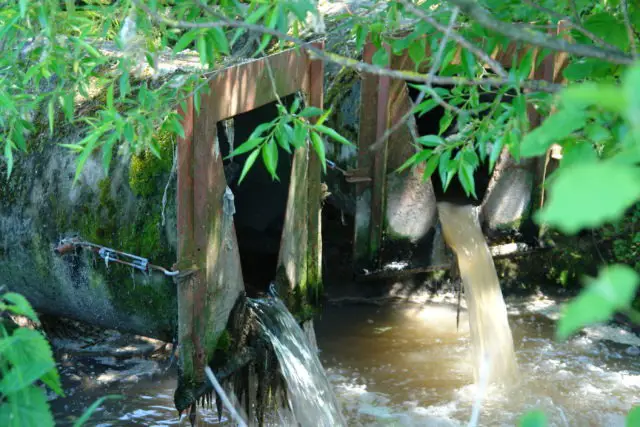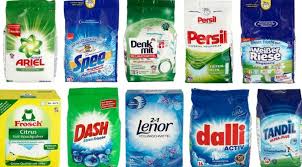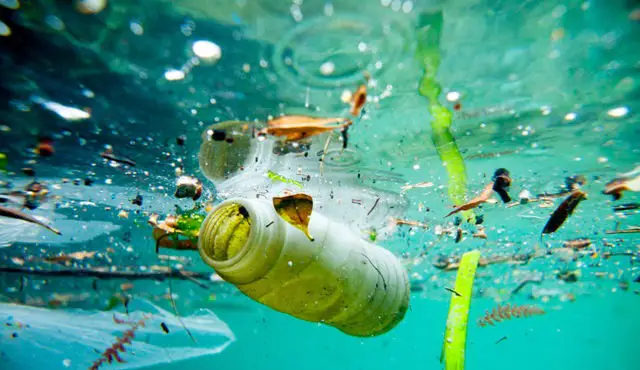
Water pollution is now more than ever an issue in the public domain. Everyone understands that water is a very valuable and precious commodity. The people most sensitive to environmental issues (but also all those who are eager to get information for the good of our planet and our health) know that the danger of water pollution also depends on our influence on the environment around us.
Since its origins, man has built his life around this precious asset which is water. Even today, water is not only essential for our daily life, but also for the survival of all the animal and plant species that populate our beautiful planet. Damaging this precious asset and compromising the ecosystem around it can be very dangerous.
Today, unfortunately, there is a risk and it is there for all to see.
Each of us has a picture of the huge amount of floating plastic that pollutes our oceans in our eyes. However, few know that there are different causes of water pollution, just as there are different kinds of pollutants. Some of these are contained in the chemical detergents we use for the daily washing of our clothes and household linen.
If you want to know what are the main causes of water pollution and how synthetic chemical detergents hurt the environmental impact, read the article below.
You will be more aware and informed about problems concerning the environment and your everyday life.
Ready? Let’s start.
Water pollution: what it is

Before addressing the problem relating to the impact of chemical detergents on our environment (and in particular on the waters of our planet) it is necessary to clarify what is meant by water pollution, otherwise known as “water pollution”.
This form of pollution consists mainly of modifying the balance of an ecosystem that has water as its main element. Keep in mind that life on Earth revolves all-around water, especially human life.
Furthermore, water pollution may be due to various factors that influence and aggravate its balance.
We will list the main ones below.
Industrial and agricultural pollution industrial pollution is certainly one of the factors that weigh the most on the economy of environmental impact. Chemical industries release substances that are harmful to plants and living beings daily and alter their ecosystems.
Then there are other kinds of industries, apparently harmless from the environmental point of view, which (by dispersing some components incorrectly), can give rise to ecological imbalances of various kinds.
An example is the dairy industry, which can favor the proliferation of molds and bacterial microorganisms that attack and alter the surrounding environment.
Even in agriculture, it is necessary to be careful about the number of substances used as fertilizers or pesticides. The risk of excessive use of these substances lies in the fact that once absorbed by the soil, they reach the underground aquifers and pollute them. We need a measured and conscious use of certain products to prevent this from happening.
- Urban pollution
Urban pollution means pollution due to the discharges of all inhabited buildings, including offices and commercial activities of various kinds. If properly purified, urban wastewater has a minor impact on the environment in which it is dispersed. However, when their dispersion is not correct, the risk that may arise is that of excessive water pollution.
Water pollution, also, in this case, can be due to any kind of pollution of substances dispersed by man which, if absorbed by the soil, can reach the underground aquifers, thus compromising their composition.
- Pollution by hydrocarbons
Hydrocarbon pollution is mainly due to oil dispersion. It can be caused by its release during extraction or its accidental dispersion due to tanker breakdowns. It is certainly a harmful type of pollution and can have very serious consequences.
Keep in mind that water pollution – whatever the factors that trigger it – can happen in two different ways. In fact, pollution can be:
● Direct
● Indirect
When we think, for example, of the pollution of the seas, the sad image of the shipwrecked oil tanker immediately comes to mind, releasing the huge floating black spot responsible for the death of a large number of marine organisms and animals into the surrounding waters.
This kind of pollution can be called “direct”, that is when a pollutant is poured into the water without any kind of purification.
On the other hand, “indirect” pollution occurs when pollutants arrive in the waters of rivers through their dispersion into the air or the soil. Also in this case we can speak of water pollution, even if unfortunately the indirect way, being less visible, is the one we are not very aware of.
There are many ways in which we can act to avoid pollution directly or indirectly.
Today’s scenario: the pollution of the oceans

Today we are talking above all about a type of pollution, the awareness of which was born around the 2000s, namely the pollution of the oceans. This kind of pollution affects the seas and oceans and it is a very dangerous type of water pollution for our planet.
Ocean pollution involves first of all the problem of the dispersion of plastics and microplastics in water: once they enter the water, plastics inevitably change the water balance.
They are ingested by marine animals and consequently enter their food chain.
We must not underestimate the repercussions that this fact can have on human health. Man, also feeding on the same aquatic organisms, indirectly ingests the same pollutants already present in fish.
Pollution of the oceans from plastics and microplastics is a serious problem and must be addressed as such. Awareness and information about its causes are already a step forward in the desire to find solutions. You too can do a lot to prevent the situation from escalating. It’s simple and doesn’t cost much effort. By reading what follows you will understand how you can help save the beauty and health of our planet.
Chemical detergents: what are the components
Let’s now move on to a topic that concerns our everyday life: the use of chemical detergents. You would never think how much an everyday activity like doing laundry can have an impact on the environment in which we live.
You must know that traditional detergents and softeners contain synthetic chemical components in their compositions whose effects on the health of the environment should be known, as well as ours.
Unfortunately, by doing the laundry, we are unintentionally responsible for the release of certain chemicals which, if not properly dispersed in water, can be harmful to our planet in the long run.
The main chemicals harmful to the environment and our health contained in traditional detergents and softeners are:
● SLEs: the abbreviation SLEs stands for “Sodium Lauryl ether Sulphate”. It is a surfactant that is obtained by refining oil. The function of the SLES contained in detergents and softeners is to increase their foaming power in contact with water
● SLS: stands for “Sodium lauryl sulfate”. It too is often present in traditional chemical detergents and is a foaming agent as well as SLEs. Being a derivative of petroleum, this substance too can have a strong polluting impact on the environment
These kinds of substances are almost always present in the detergents we use every day to do our laundry. To realize this, just look at the label of your laundry detergent and you will find, among the various components of which it is formed, also these elements.
The impact on the environment: extraction and release
As already mentioned, the surfactants present in synthetic chemical detergents can hurt the environment.
The major damage that can result from the dispersion of these substances in the environment has two origins: the extraction phase and the release phase.
● Extraction phase: pollution of the environment occurs first of all in the extraction phase. It is well known that oil extraction plants have a major impact on the environment around them. So even these elements that are contained in the detergents we use for our everyday life since they derive from oil refining, are harmful to the health of our environment.
● Release phase: the disposal of this kind of substance in nature is equally complex and has a strong environmental impact. This aspect mainly concerns the pollution of the water on which the surfactants of the synthetic chemical detergents act.
These substances generate a phenomenon called water eutrophication. Thanks to this process the proliferation of aquatic plants increases beyond measure. This micro-alga, therefore, hyper nourished due to the quantities of sulfur, phosphorus, and nitrogen dispersed thanks to the use of detergents, become too many and the fish are no longer able to dispose of them.
With the increase of micro-algae, the oxygen in the water is considerably reduced, giving rise to a situation of danger for the survival of fish and other marine animals.
What can you do
If you have read the article up to this point, it means that you understand the importance of pure water and how the health of our waters is so precious for life on Earth. It’s important to filter the chemically polluted water before leaving it on the nature outlet.
Below you will find four important steps to take to change your lifestyle in favor of sustainable habits.
- Read the detergent labels carefully
Get in the habit of reading detergent labels. Find out what ingredients are in the detergent you buy at the supermarket. The awareness of what we consume can help, for example, to measure the use or find alternatives more natural and with less environmental impact, such as the ecological detergents, equally effective against dirt.
- Use less plastic
Plastic plates and cups are certainly comfortable and allow us to speed up the housework when we have little time. But did you know that today there are disposable plates and glasses in biodegradable material? Excessive consumption of plastic can be drastically reduced if everyone is aware of the disastrous impact it can have on the environment.
Today, there is the possibility of buying home and personal hygiene products in bulk mode, always using the same container that can be periodically refilled with detergent or soap. This is a good way to limit the consumption of plastic.
The concern for a plastic-free lifestyle, with a lower environmental impact, helps to be more sensitive in every small or big aspect of daily life.
- Always stay informed
As already mentioned, being aware of the current problems in water pollution is the first incentive to adopt an ecological lifestyle.
Finding out about the components of the products we use can also be useful for our health, as well as for the nature that surrounds us. The information also concerns the causes and consequences of certain human behaviors, which voluntarily or involuntarily generate negative repercussions for the health of our planet.
An informed mind is an open and responsible mind, ready to change its habits for the good of the Earth and all living organisms that inhabit it, including men.
Author Bio
Name- Sunil Trivedi
Bio- Sunil Trivedi is the Managing Director of Aqua Drink. With 15 years of experience in the water purification industry, Sunil and his team have been ensuring that his clients consume 100% potable water to lead a healthy life and keeping water-borne diseases miles away.


